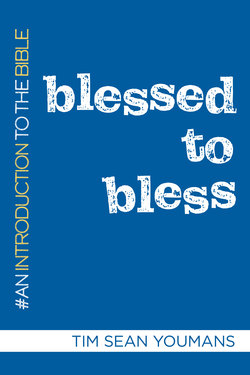Читать книгу Blessed to Bless - Tim Sean Youmans - Страница 19
На сайте Литреса книга снята с продажи.
Оглавление9
Tower of Babel
Scan Genesis 10, then read Genesis 11:1–9.
Genesis chapters 1–11 are considered the mytho-poetic origin stories of the ancient Hebrew people. To reiterate from chapter 5, the word “myth” does not mean false. Rather, myths are the stories that hold a culture’s understanding of itself. They can be fictional, historical, or a blending of both. It may be confusing to describe biblical stories to be a mixture of both; however religious stories speak to both sides of the human brain, the creative imaginative side and the logical rational side.
Genesis chapters 1–11 seek to answer a series of origin questions: Where did life come from? How did humanity begin? What is the source of evil? How did violence first emerge? Where did human language come from?
In Genesis chapter 10 Noah sends each of his three sons in different directions to repopulate the world. This is referred to as the Table of Nations. Shem goes east toward Mesopotamia; Ham is given Egypt, including the small bit of land given to his cursed son Canaan (modernday Middle East, also known as the Levant); and Japheth goes north into what is now the nation of Turkey.
The final story in this collection of primordial, primeval, mythopoetic stories is the Tower of Babel found in chapter 11. Can you see a similar theme in this story as the one in the Garden of Eden? When building Babel, they don’t expressly say they are trying to be God, but striving for the heavens in order to make a name for themselves. They want to elevate their position. God confuses their language and frustrates their effort, scattering them across the region. (Make a mental note that this city is the forerunner of Babylon. This will become important later in our reading.)
Once again, the scientific point of view takes issue with the suggestion that the varied global languages originated in one location at one point in time. But knowing whether this story is literally true isn’t important to what the story is trying to say about human nature. It may be important to you, but that is where the wide variety of interpretations come into play.
At the heart of all these stories is a common idea. God is God, human beings are not. We are created in the image of God and share certain aspects of God, but we are not God. When human beings attempt to rise to the level of God, they do damage to self and each other. Human beings have created a huge problem. How will God resolve that problem? The answer is a long process that begins in Genesis chapter 12.
Questions for Reflection or Discussion
1. At this point you may want to talk about what you think about these early Genesis stories in general. Which are your favorites? Why?
2. What story seems to be the truest of all of them? In what way? What are other theories about the origins of language?
